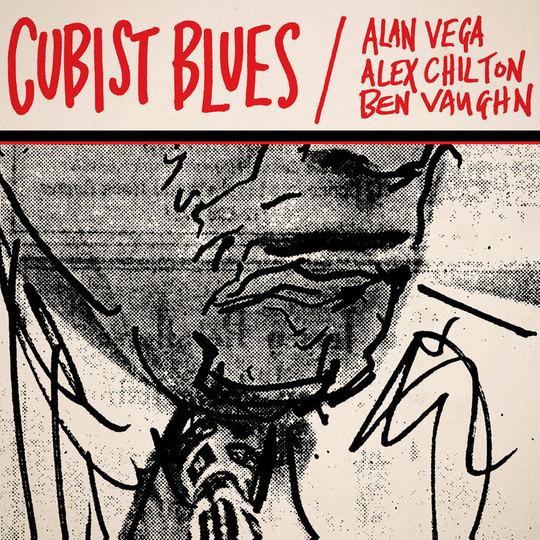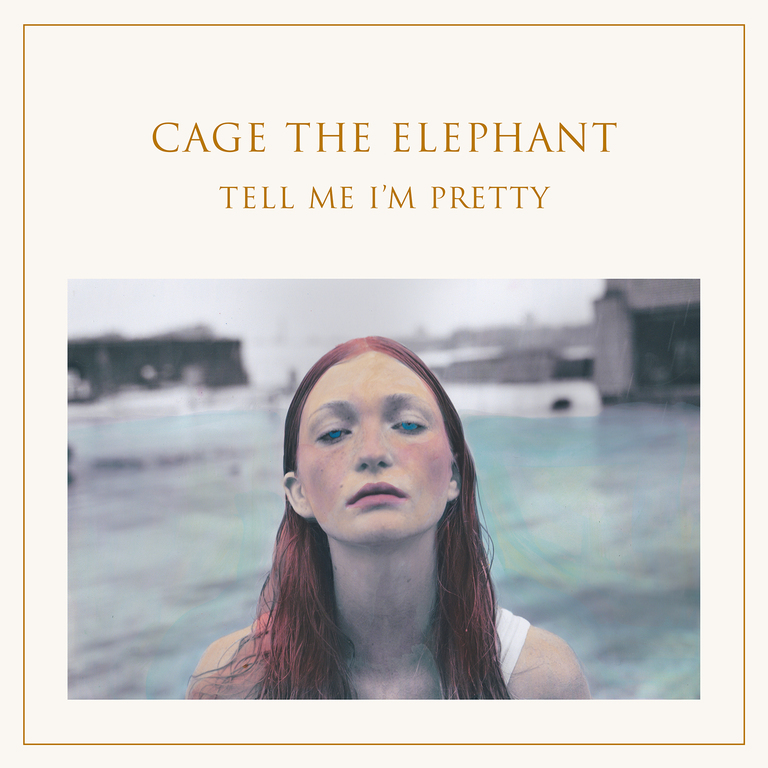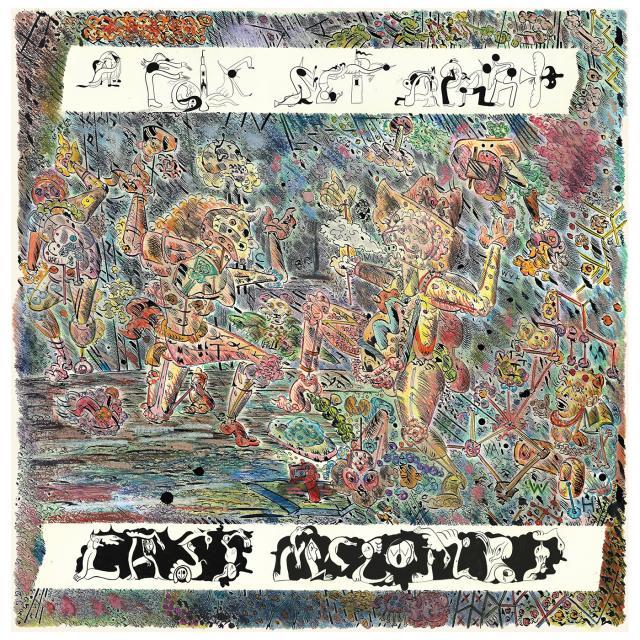'How could you see what you were playing?'
'We couldn’t.'
Alan Vega on the making of Cubist Blues, a one-off, totally improvised, semi-supergroup project that saw the Suicide frontman rattle off stream of consciousness vocals over a backing of twangy Fifties guitar blues jams from Big Star’s Alex Chilton, and musician/ producer Ben Vaughn over the course of two long, late-night sessions.
The story goes that back in 1994, Vega and Vaughn were talking about doing something together as the two friends were in New York at the same time, so decided to meet up to play some blues in a smoky downtown studio space where Vega was recording a solo album. Vaughn brought his friend Chilton, just for the hell of it, despite Vega never having met him. They came together and produced ‘Fat City’, a hypnotic, driving psychobilly jam that basically hits the ground running and doesn’t stop for all its eight minutes.
Spurred on by how well that song came together, they hatched a plan to put as much down as possible, and over the next two nights, they birthed Cubist Blues, a raggedy snapshot of three disparate, but equally talented musical minds.
It’s a rough-round-the-edges affair, with nothing laboured over, which gives the whole record a white-hot energy and experimental flair, but also exposes a few weak spots which perhaps should’ve been tightened up or left off entirely. It’s a fun album for the most part though, as you can sometimes hear Vega sending little bits of encouragement via his vocals: “sounds cool, Alex” he croons over album opener ‘Fat City’s motorik bassline and Lynchian Fender Twin twang at one point.
This being a re-release (as Henry Rollins’ label originally released the LP back in ’96), it’s interesting to hear what, if anything, has dated or hasn’t exactly translated well. The good news is that the majority of stuff here sounds as exciting and raw as I bet it did back in 1994, and although there are a few mis-steps, they don’t detract from the overall smoky, film-noir tone.
“You’re on, baby” snarls Vega at the start of ’Fly Away’, one of the best things here, as a tribal tom-tom rhythm syncopates with Chilton’s fuzzy guitar and jazzy piano flourishes. It’s weird pacing, as within the first three tracks, you get two of the absolute highlights, and also the least enjoyable track on the record: that award sadly falling to the horrendously dated synth-led trudge of ‘Freedom’, which really, really doesn’t do the album any favours.
‘Candyman’, however, gives us a glimpse into something truly special, as the twangy guitars get underpinned with some genuinely terrifying synth drone action, which buzzes away in the background, occasionally popping up for air before skulking back to the fringes of the record. It almost sounds as if there’s about three songs playing at once here, but in a really magical kinda way.
There’s also time for a brief honky tonk piano blues number in ‘Lover of Love’, which sounds a little like a drunk Elvis slurring over a Tom Waits standard. By no means a bad thing, by the way.
There’s an awful lot to get your teeth into here, and after a particularly hit-and-miss mid section, which still manages to just about work taken all at once, the last few tracks really start to nail their sound properly, culminating with the komische-blues of ‘The Werewolf’, which is basically a casio beat driving a bluesy synth bass over wide-eyed yawns of guitar feedback - again, not a bad thing at all.
A little reverb-swamped doo-wop piano number, ‘Dream Baby Revisited’, closes the record, and I’m assuming the recording sessions too.
It’s a curious little snapshot, of three talents crossing paths for just one short lived (and under-appreciated) album, as the band only ever played two shows together before disbanding and heading out into their own solo careers again. To hear what else they could’ve come up with would’ve been interesting, but also would’ve detracted from the myth and the legend of Cubist Blues, something that in the end, is definitely worth protecting.
-
7Gavin Miller's Score
-
8User Score






















